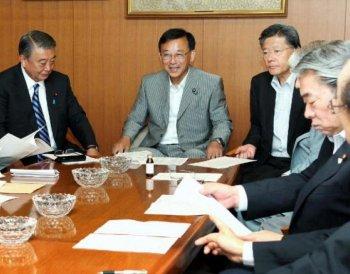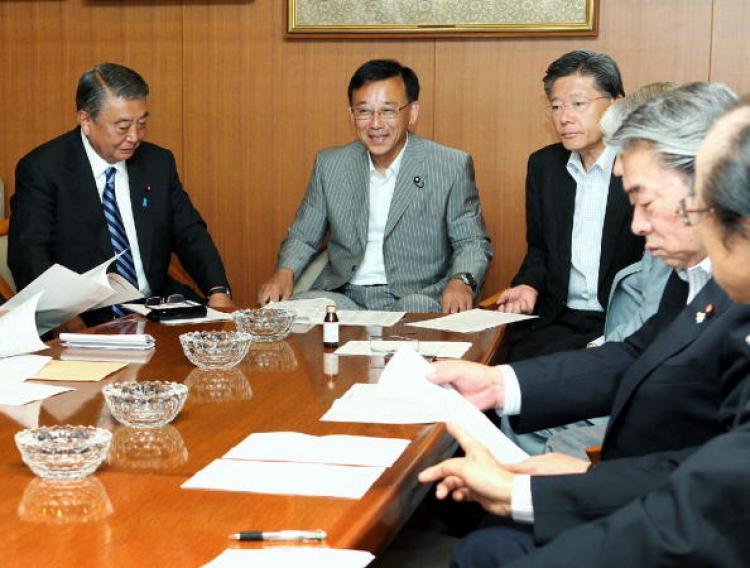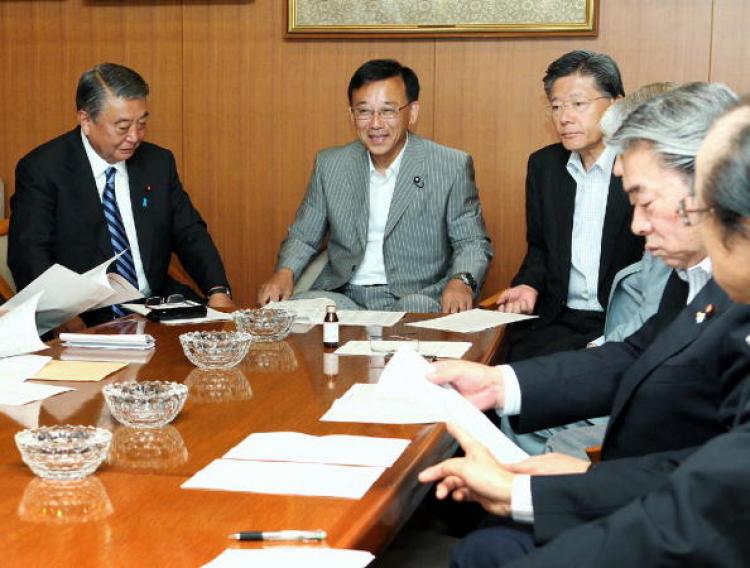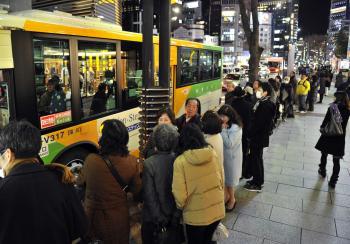TOKYO—All was quiet at election headquarters for Japan’s ruling Democratic Party of Japan (DPJ). Shortly after the ballot counting started after Sunday’s vote, it was announced that the DPJ had lost control of the upper house to their rival, the Liberal Democratic Party (LDP). Campaign staff then started leaving the hotel and most media decamped. One of the remaining reporters whispered, “Not many people to interview here.”
The ruling DPJ needed to win 60 seats of the 121 being contested. It fell far short taking only 44, a crushing fall from the 116 seats it held before the election. LDP took 51 seats.
Half of the 242 seats in the upper house were up for election in Sunday’s vote. Terms for members of the House of Councilor last six years, and every three years half of those seats go to the poles.
The election was a major disappointment for the ruling party, who only 10 months before, had gained power from the LDP. At the time, the victory represented a historic regime change.
Prime Minister Naoto Kan reflected on the results at a press conference saying, “Suggestion on consumer tax increase did not go down very well among people. It lacked explanations.”
In replying to a question on his responsibility for the poor election result, Kan said, “I ask the Japanese people to judge me as I carry on running the government.” He did not give any indication that he would resign his position.
Despite losing the upper house, the DPJ remains in power since it still controls the more powerful lower House of Representatives.
However, the loss represents a significant blow to the PM who only assumed office on June 8 by taking over from Yukio Hatoyama. Hatoyama resigned after backpedaling on his election promise to remove a U.S. marine air base from Okinawa.
Meanwhile, at LDP headquarters the mood was triumphant from the moment ballot counting started. Sadakazu Tanigaki, the head of the LDP, said he appreciated the “judgment by the people.”
He commented, “Prime Minister Kan should dissolve the lower house and ask if our citizens are trusting the government.”
Your Party, which was founded by Yoshimi Watanabe in August last year, to eliminate control of the government by nonelected members in the bureaucracy, gained 10 seats.
Watanabe told the press, “There is no way for us to join a coalition government, as the political agenda are completely different.” However, he hinted the possibility of coalition in limited areas such as getting out of deflation.
The ruling DPJ needed to win 60 seats of the 121 being contested. It fell far short taking only 44, a crushing fall from the 116 seats it held before the election. LDP took 51 seats.
Half of the 242 seats in the upper house were up for election in Sunday’s vote. Terms for members of the House of Councilor last six years, and every three years half of those seats go to the poles.
The election was a major disappointment for the ruling party, who only 10 months before, had gained power from the LDP. At the time, the victory represented a historic regime change.
Prime Minister Naoto Kan reflected on the results at a press conference saying, “Suggestion on consumer tax increase did not go down very well among people. It lacked explanations.”
In replying to a question on his responsibility for the poor election result, Kan said, “I ask the Japanese people to judge me as I carry on running the government.” He did not give any indication that he would resign his position.
Despite losing the upper house, the DPJ remains in power since it still controls the more powerful lower House of Representatives.
However, the loss represents a significant blow to the PM who only assumed office on June 8 by taking over from Yukio Hatoyama. Hatoyama resigned after backpedaling on his election promise to remove a U.S. marine air base from Okinawa.
Meanwhile, at LDP headquarters the mood was triumphant from the moment ballot counting started. Sadakazu Tanigaki, the head of the LDP, said he appreciated the “judgment by the people.”
He commented, “Prime Minister Kan should dissolve the lower house and ask if our citizens are trusting the government.”
Your Party, which was founded by Yoshimi Watanabe in August last year, to eliminate control of the government by nonelected members in the bureaucracy, gained 10 seats.
Watanabe told the press, “There is no way for us to join a coalition government, as the political agenda are completely different.” However, he hinted the possibility of coalition in limited areas such as getting out of deflation.





